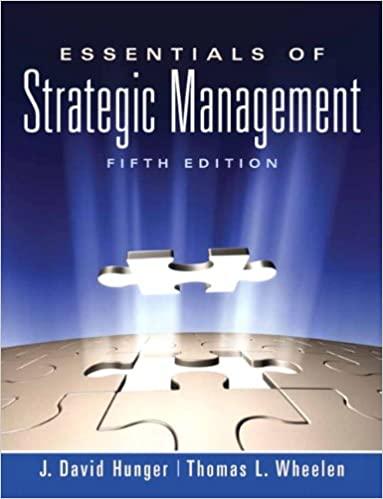Question
organizational behavior mgmt 320 EXERCISE 3 WORKSHEET: DIVERSITY, INCLUSION, AND BEYOND THE ICEBERG YOUR NAME: DATE: Instructions: After completing the Action items 1, 2 and
organizational behavior mgmt 320
| EXERCISE 3 WORKSHEET: DIVERSITY, INCLUSION, AND BEYOND THE ICEBERG |
| YOUR NAME: DATE: |
| Instructions: After completing the Action items 1, 2 and 3, you are ready to reflect on the impact of what you have learned and apply it to yourself. Review the 10 questions below. In the space provided beneath the question, type in responses in "narrative format with complete sentences and correct punctuation". Make sure that your name is on each page and there are page numbers in your document by using the "header or footer" feature. |
| 1.Describe your own cultural iceberg characteristics that are in the upper iceberg or "above the water". Were there any surprises? |
| 2.Describe your own cultural iceberg characteristics that are below the surface. Were there any surprises? |
| 3.Describe a situation of conflict in your work, volunteer, school, or personal life. How did your surface (above water) and deeper (below water) characteristics influence that conflict situation? |
| 4. In the above situation, how did your surface and deeper levels differ from the person you conflicted with? What were assumptions, attitudes that were held by both parties. |
| 5. If you knew then what you know now about the cultural iceberg, leadership, behaviors in organizations, how would you change your interaction; approach; or outcome of that situation if you could do it all over again? |
| 6. If you were to rank your current comfort level with working with people who are different than yourself in ethnicity, gender, age, beliefs or other characteristics, how would you rank yourself. 1 (being very low) to 7 (being very high). Explain your ranking. |
| 7. If you were to rank your personal experience level with working with people who are different than yourself in ethnicity, gender, age, beliefs or other characteristics, how would you rank yourself. 1 (being very low) to 7 (being very high). Explain your ranking. |
| 8.Name one thing that you have done this week that represents a change for you in your behavior and reflects either embracing or rejecting a "growth mindset" in diversity of choice, thought or action in your life? Who are you spending time with? What topics do you find yourself drawn to? Where are you traveling or spaces where you spend your time? What are you reading (outside of school requirements)? What are you seeking to understand more about? What have you done recently that stretched you outside your comfort zone? |
| 9.What is the diversity measure of your personal and professional stakeholder network? In other words, how diverse are the people that you spend time with and in what ways? If your network is not diverse, what can you do to increase its diversity? You know, we hear often about good old' boy networks or exclusive ingroups that do not let others unlike themselves in to gain the same benefits of the group....and they're certainly alive and well in many institutions. But to some extent, we all have a network of people that we're comfortable with. So, this question is about your capacity to develop relationships with people that are very different than you. And those differences can be biological, physical, functional, political, cultural, socioeconomic. And yet, despite all these differences, they connect with you, and they trust you enough to cooperate with you in achieving a shared goal. Great leaders understand that having a more diverse network is a source of pattern identification at greater levels and of solutions, because you have people that are thinking differently than you are. |
| 10. How will understanding these cultural surface and deeper levels help you be a stronger manager, leader, employee, family member, or citizen? |
Step by Step Solution
There are 3 Steps involved in it
Step: 1

Get Instant Access to Expert-Tailored Solutions
See step-by-step solutions with expert insights and AI powered tools for academic success
Step: 2

Step: 3

Ace Your Homework with AI
Get the answers you need in no time with our AI-driven, step-by-step assistance
Get Started


